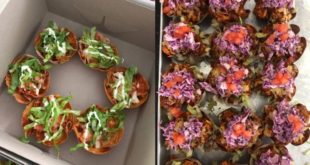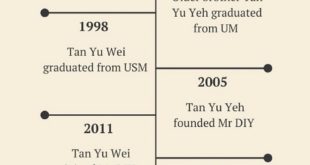Over the years, it seems like larger F&B players are buying over smaller operators in a bid to achieve critical mass, strengthen their competitiveness and eventually scale up their business.
On the consumers’ end, many are worried that such consolidations will lead to price increases and a possible drop in food quality.
While this may be true, the flipside is that more efficient operations from larger food operators can lead to cost savings and there is no need for operators to raise prices to maintain profit margin.
Larger companies are usually able to achieve cost savings by lumping certain operations together and making larger bulk purchases. This is often referred to as “economies of scale”.
Here’s a look at some notable acquisition deals in the local F&B industry that are worth up to S$ 80 million:
1. Jumbo Group And Kok Kee Wanton Noodle

Food and beverage company Jumbo Group is reportedly looking to acquire a 75 per cent stake in popular dumpling noodle stall Kok Kee Wanton Noodle for S$ 2.1 million in cash and shares.
The acquisition move comes after Jumbo reported a net loss of about S$ 8.2 million for its financial year ended September 30 — this is in contrast to its net profit of S$ 11.7 million in the previous year.
Additionally, its revenue fell 36.5 per cent to S$ 97.6 million, from S$ 153.6 million a year ago, mainly due to the impact of Covid-19.
If the acquisition follows through, Kok Kee’s owner Leong Goh Lian will continue to hold the remaining 15 per cent stake.
Kok Kee started off as a humble stall at Lavender Food Square in 1985. It later relocated to Jalan Besar and temporarily ceased operations from 2016 to 2019, before reopening at its current location at 30 Foch Road.
Meanwhile, The Jumbo Group owns a stable of F&B brands including Jumbo Seafood and Ng Ah Sio Bak Kut Teh.
It plans to diversify its income streams instead of just focusing on its existing full-service dine-in restaurants, and expand Kok Kee’s network locally.
“Jumbo is cautiously optimistic of the future prospects of Kok Kee and the business as it caters primarily to the local mass market, well suited for fast turnover dine-in or takeaway,” the company noted.
2. Aztech Group And Kay Lee Roast Meat

Kay Lee Roast Meat is best known for their roasted meats like char siew, roasted meat and roasted pork.
In 2012, they made headlines because the original owners, Ha Wai Kay and Betty Kong, wanted to sell their recipe and premises for S$ 3.5 million.
Two years later, they managed to find a buyer and sold their business for S$ 4 million to electronics firm Aztech Group, whose chairman took just 10 minutes to seal the deal.
At the point of the deal, it was reported that 10 Kay Lee restaurants would be rolled out over the next two years.
However, a recent check on their website shows that the brand is now down to just one store, the original outlet at 125 Upper Paya Lebar Road. All other outlets that have been opened under Aztech’s management are no longer around.
This is unexpected since Aztech previously detailed its plans to grow Kay Lee to the next level in 2014. This included hiring food scientists, learning and documenting Kay Lee’s secret recipes, and getting industry veteran Sam Ng to oversee operations.
Since the acquisition of Kay Lee, Aztech Group has delisted from the Singapore Exchange in 2017.
Former owners Ha and Kong were also charged in 2016 for tax evasion. They were each sentenced to four weeks’ jail and fined S$ 164,751.45.
3. BreadTalk Group And Food Junction

BreadTalk founder George Quek had helped start up Food Junction — Singapore’s first chain of modern food courts — in 1993.
He later founded BreadTalk in 2000. In 2003, it got listed on Sesdaq on the Singapore Exchange (now replaced by the Catalist board).
That same year, it decided to set up food courts in China, which led Quek and wife to sell their substantial stake in Food Junction to avoid a potential conflict of interest.
Quek also had to resign as a non-executive director of Food Junction.
He has since come full circle as BreadTalk Group announced in September 2019 that it plans to acquire food court operator Food Junction Management (FJM) for S$ 80 million in cash through subsidiary Topwin Investment Holding.
In a filing to the Singapore Exchange, BreadTalk Group said that Topwin had entered into a sale and purchase agreement on 30 August 2019 for the proposed acquisition of FJM.
The acquisition was set to make BreadTalk the third-largest food court operator in Singapore, behind NTUC Enterprise.
As at June 30 last year, BreadTalk operates food courts under the Food Republic and Food Opera brands across Singapore, Malaysia, China, Taiwan, Cambodia and Thailand.
While the transaction value is at S$ 80 million, Food Junction’s net profit in the first half of 2019 was only S$ 3,183. In the 2018 financial year, it recorded a net loss of S$ 1.7 million.
According to the filing, the S$ 80 million figure was arrived at after “arms’ length negotiations”.
It took into consideration factors such as the quality of the assets being acquired and the strategic value of FJM’s existing network of food courts and outlets to BreadTalk Group, as well as its financials, earnings quality and future potential.
BreadTalk Group said the acquisition would provide it with access to FJM’s network of food courts and outlets, allowing it to obtain additional revenue streams and “benefit from the synergies” with its existing food courts and outlets, through the streamlining of costs and sharing of resources.
4. Koufu And Deli Asia Group

On 30 July this year, food court and coffee shops operator Koufu acquired Deli Asia group for S$ 22 million.
The Deli Asia group is one of Singapore’s fried food and dough products manufacturer, consisting of four companies: Deli Asia, Delisnacks, Dough Culture and Dough Heritage.
Founded by Alex Ong and wife Irene Lee, the group supplies frozen and partial fried food to third-party F&B operators, restaurants as well as food court, coffee shop and hawker centre stalls.
It also has approximately 60 franchised F&B stalls at hawker centres and coffee shops under its Delisnacks brands.
“The synergistic effect of Deli Asia’s complementary business enables
Koufu to develop our supply chain of well-loved traditional fried food and dough products for retailing at our food courts, coffee shops and quick-service restaurants, thus adding a greater variety of quality choices to our dim sum, bakery and confectionery items for all our consumers,” said Pang Lim, Koufu’s executive chairman and CEO.
The Deli Asia group has production and warehouse facilities in Singapore. Moving forward, Koufu looks to enhancing its supply chain security with the consolidation of Deli Asia’s manufacturing capabilities at a new integrated facility.
This new facility will “optimise economies of scale and reap operating synergies,” added Pang.
Koufu also said that the acquisition will enable it to accelerate its business expansion plan and diversify its income streams, as well as improve its resilience towards future shocks and economic uncertainties.
The mainboard-listed group also shared that there are are plans in the pipeline to expand the current network of retail kiosks under the Dough Culture brand from the current seven to at least 20 in the next five years.
5. NTUC Enterprise And Kopitiam

In September 2018, NTUC Enterprise acquired homegrown food centre operator Kopitiam for an undisclosed sum.
According to FairPrice chief executive Seah Kian Peng, food now accounts for more than a quarter of the average monthly household expenditure, amounting to S$ 1,199. This is 25 per cent more than a decade ago.
The acquisition makes NTUC the biggest operator of coffee shops and foodcourts in Singapore, with 64 foodcourts in total. It also manages 35 coffee shops and 12 hawker centres at point of acquisition.
Meanwhile, Kopitiam spans 80 outlets comprising 56 foodcourts, 21 coffee shops and three hawker centres, as well as two central kitchens. It is founded in 1988, and is considered one of the largest players in the F&B industry.
Following the acquisition, NTUC plans to raise its count of food outlets to more than 100.
The acquisition complements NTUC Foodfare, as both entities share the common objective of making quality cooked food affordable and accessible to all.
After the acquisition, both NTUC Foodfare and Kopitiam continues to operate separately with their management teams and employees remaining in place.
Kopitiam’s popular prepaid stored-value cards for cashless dining, used by about 1.8 million cardholders across Singapore, can also still be used at all its outlets.
6. Kimly And Six Food Outlets

Catalist-listed coffeeshop consolidator Kimly completed the acquisitions of six food outlets for S$ 35.5 million in June 2020.
This comprises of two coffeeshops, three industrial canteen units and a restaurant unit.
Completion of the acquisitions of the remaining two coffeeshops for a total consideration of US$ 14.54 million will only take place at a later date once the requisite approvals and/or permissions have been obtained, which have been delayed due to COVID-19 disruption.
The four coffeeshops are located at Block 7 Everton Park, Block 246 Hougang Street 22, Block 380 Clementi Avenue 5 and Block 347 Ang Mo Kio Avenue 3.
Most of these acquired properties will progressively undergo asset enhancement initiatives such as layout improvements, increase of seating capacities, as well as the introduction of new and exciting food concepts.
According to Kimly, these moves are aimed at retaining current food stall operators, attracting new food stall tenants as well as better serving customers.
It also noted that the Covid-19 outbreak has changed the landscape of the food and beverage industry, in that people are generally more cost-conscious as a result of the economic impact of the outbreak.
“The group could benefit as consumers continue to prefer more economical food options in coffeeshops and also opt for more online food deliveries,” said the company.
With the completion, the group’s total number of food outlets increased from 73 to 79, complemented by an additional four drink stalls and three food stalls.
M&A At A Standstill Due To COVID-19
Merger and acquisition activity has been slow this year due to the COVID-19 pandemic.
Outside of the F&B industry, some notable acquisitions this year include Singapore proptech firm 99 Group’s buyout of Singapore Real Exchange (SRX), and Jurong’s Big Box mall.
Despite the slow M&A activity, investors and companies are on the lookout for emerging business opportunities that are the most resilient in pandemic times.
Many see a downturn as an opportunity, particularly if valuations come down as a result. Once businesses can evaluate the virus’ impact on the market and the situation has stabilised, it’s likely that we’ll see renewed optimism.
Afterall, consolidation of businesses through M&A is part of the process of repairing a broken economy.
Featured Image Credit: Miss Tam Chiak / ShaunChng.com / CapitaLand / Koufu / Kopitiam / Berita Harian



